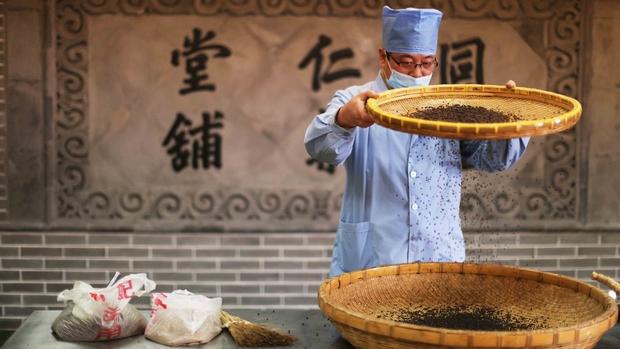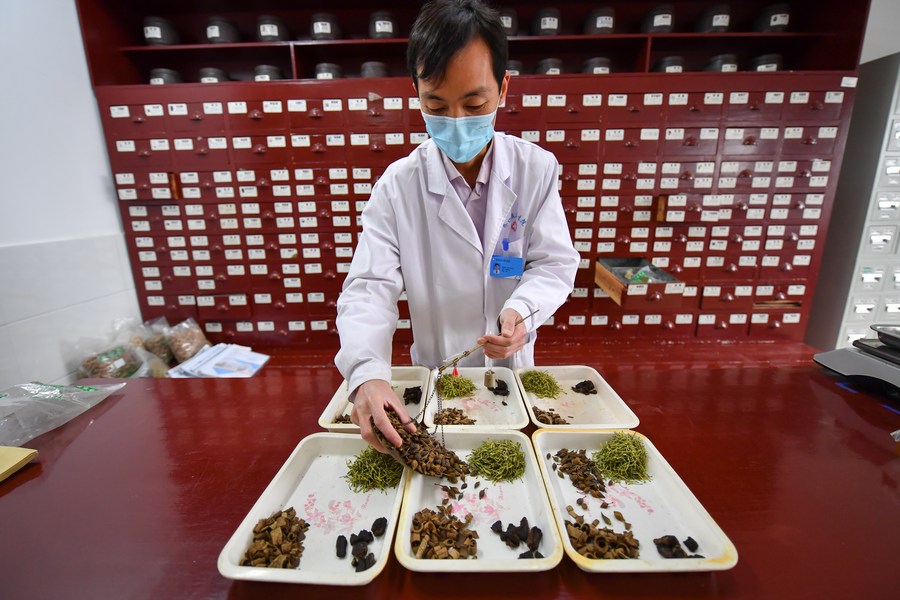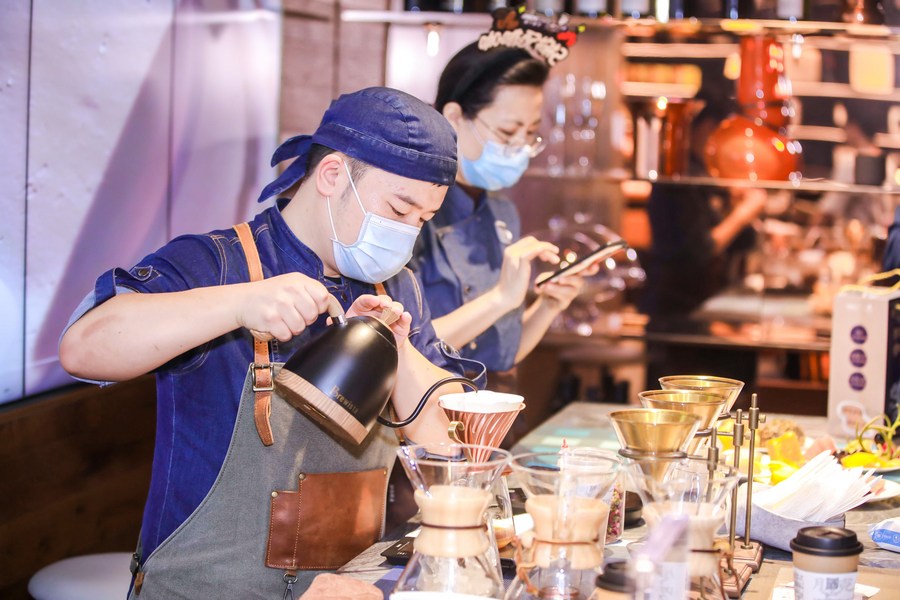Traditional Chinese medicine finds new markets as herbal lattes, food products surge

A pharmacist processes a traditional Chinese medicine at a Beijing Tongrentang Group Co Ltd's factory in Beijing. (Photo/China Daily)
Traditional Chinese medicine (TCM) products are expanding beyond pharmacies as businesses blend TCM with modern food and beverages.
Time-honored TCM pharmacies and hospitals are increasingly offering herbal tea drinks and specialty foods. Beijing's Baita Temple pharmacy serves loquat pear lattes, while the First Teaching Hospital of Tianjin University of Traditional Chinese Medicine sells bread infused with herbs like astragalus.
The trend of integrating TCM with catering is gaining momentum, with products such as TCM bread, ice creams, and coffee attracting a growing number of consumers. This trend reflects increasing health awareness and helps more individuals learn about TCM principles, said Zhang Jin, a doctor from Xiyuan Hospital of the China Academy of Chinese Medical Sciences.
The consumer demographic is shifting younger, according to Hu Hefeng, a Chinese medicated food dietitian. People born after 1995 increasingly purchase these products, challenging the notion that medicinal cuisine appeals mainly to older generations.

A pharmacist dispenses traditional Chinese medicine (TCM) at a health center in Qiaokou Town, Wangcheng District, Changsha, central China's Hunan Province. (Xinhua/Chen Zeguo)
In May, the Zhejiang Provincial Hospital of Chinese Medicine launched a smoked plum soup for 1.91 yuan ($ 0.26). The product drew more than 1.15 million orders in its first 24 hours through the hospital's online platform, reaching 10 million orders in one day. "More than 80 percent of the orders came from young people aged 20 to 35," said Ye Wenyi, the hospital's office director.
Smoked plum soup, a TCM beverage, combines smoked plum, hawthorn, tangerine peel and licorice. The drink serves as a tea alternative, known for quenching thirst and aiding digestion.
China strictly regulates the use of traditional medicine ingredients in food products. While the country's Food Safety Law prohibits adding drugs to food, it allows ingredients traditionally used as both food and medicine.

Barista of a Beijing-based coffee shop makes herbal coffee. (Photo provided to Xinhua)
In 2021, China's National Health Commission established regulations for managing dual-use ingredients. The approved list, updated through November 2023, includes 102 traditional ingredients such as cloves, Chinese yam, hawthorn and goji berries.
East China's Shandong Province has over 130,000 TCM-related health maintenance businesses and about 200 TCM medicinal food restaurants.
Shandong Province has launched a development plan for its TCM industry, aiming to integrate medicinal foods into homes, communities and health care facilities.
The provincial health commission has hosted annual medicinal food competitions since 2020 to showcase TCM-infused dishes and expand public interest.
"Research and promotion of medicinal food and herbal drinks should consider both market and consumer perspectives," said Hu, adding that skilled professionals are crucial for balancing herbal ingredients with taste.
Photos
Related Stories
- Traditional Chinese medicine center opens in Bulgaria to enhance patient care
- Food with TCM ingredients gains in popularity
- My journey into traditional Chinese medicine
- Chinese medicine teams to provide treatment to retired Maltese footballers
- China to enhance TCM's role in providing healthcare services: official
Copyright © 2024 People's Daily Online. All Rights Reserved.









